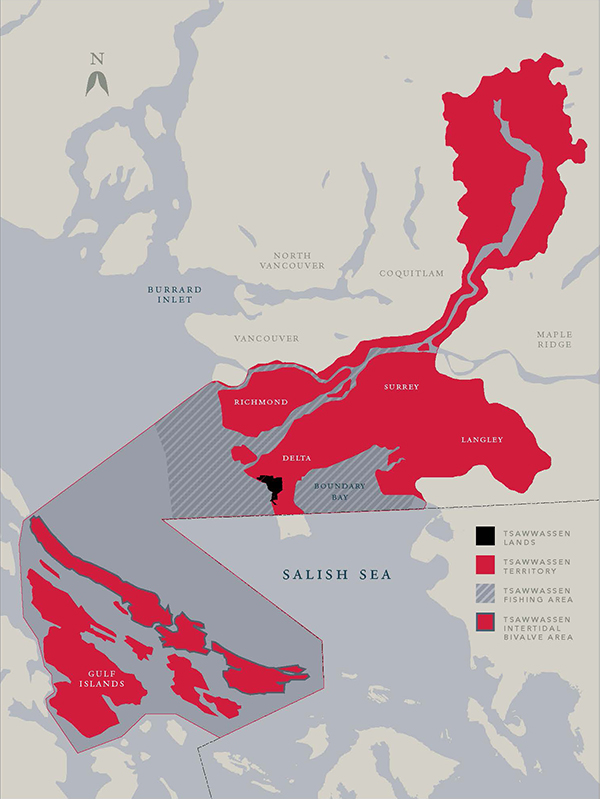Our Elders are the strength and wisdom of our Nation. They are a source of inspiration and guidance for many in our community. They also are the memory of our community. They preserve and pass on our language, our culture and our traditional heritage. They guide us on important matters of our new Government. Many of our elders have said they never thought they’d live to see a treaty reached with Tsawwassen, BC and Canada and are grateful we have dealt with this unfinished business.
Traditionally, our resources were based on fish. Salmon, sturgeon, crab, and eulachon were our primary food resources and remain a key part of our traditional lifestyle. We still harvest salmon, crab and eulachon. Fish continues to provide for cultural and social processes that are very important to our identity, our past and our future.
Traditionally, food was abundant. For centuries, we had a trade and barter system, and specialized services, such as processing of resources, were exchanged. Through our longhouse culture, we had extensive practices and ceremonies that dealt with governance functions. Our longhouse systems also ensured the redistribution of wealth to make certain our people could survive. Experts continue to learn how complex these practices were and still are.
On April 3, 2009, the Tsawwassen People ratified the first urban First Nations Treaty in B.C. It was the culmination of 14 years of negotiations. It reconciled our aboriginal rights and title and restored our right to First Nation self-government, protected in the Canadian Constitution. The Treaty provides us with municipal, provincial and federal types of jurisdiction over a land base of 724 hectares. So far, we have 23 laws that replace the Indian Act on Tsawwassen Lands and in our traditional territory. Tsawwassen First Nation also became a full member of the Metro Vancouver regional district, now Metro Vancouver, the first First Nation to do so.
For the Tsawwassen People, the Treaty has given us a cause for much hope, optimism and comfort – to know that we once again control our destiny. We are now going through a period of revival and renewal as we plan our future and seek opportunities to sustain our growth physically, economically and culturally, for present and future generations.
Tsawwassen Declaration of Identity and Nationhood


